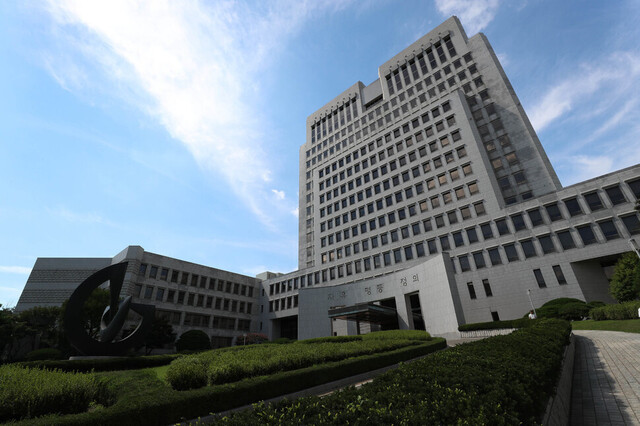 material photo” alt=”Supreme Court.
material photo” alt=”Supreme Court. Supreme Court. <한겨레> Material photo
The sentence was confirmed for representatives of companies that brought in North Korean coal in the form of Russian products to escape the UN sanctions resolution. The first part of the Supreme Court (Chief Chief Justice Park Jeong-hwa) confirmed that the court sentenced a fine of 1.3 billion won and an additional surcharge of 800 million won for 1 year and 6 months of imprisonment for the representative of the company accused of violating the Inter-Korean Exchange and Cooperation Act 30 Sun said. The court sentence was also confirmed, with a fine of 500 million won for 3 years and 6 months in prison for another company’s representative, B, who was also prosecuted. As it became difficult to bring North Korean minerals such as coal into China immediately due to the UN’s sanctions against North Korea, Mr. A and others, who had been doing business with China’s North Korean trade companies, used a method of exporting them to third countries such as China and South Korea after washing their origin in Russia. He was charged with bringing in North Korean goods. In order to bring in goods from North Korea, it is necessary to obtain approval from the Minister of Unification for items such as goods, transaction types and payment methods. They were also accused of lending tens of billions of dollars of money from a bank by presenting a counterfeit bill of lading (a securities that indicated the right to deliver cargo in sea transport). In response, the first trial judged that “the North Korean anthracite coal and anthracite coal were brought in under the guise of Russian products. This was a crime that undermined the effectiveness of the government’s trade policy and import restrictions on North Korean goods, and undermined the sound trade order.” On the other hand, the appellate court admitted that he was guilty of counterfeiting and exercising securities, saying, “In the process of carrying in disguised without going through the procedures set forth in the Inter-Korean Exchange and Cooperation Act, we have made a false import declaration or false customs declaration.” The Supreme Court also said, “There is no mistake in misunderstanding the legal principles regarding the violation of the law of logic and experience in the judgment of the centrist, and the conviction of the offender of the Act on Inter-Korean Exchange and Cooperation, and the establishment of a crime of violation of the Customs Act due to smuggling or false reporting. The appeal was dismissed. By Jo Yoon-young, staff reporter
